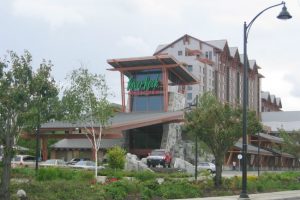 Casinos are often used by criminals as a front for money laundering crime. All casinos are required to have an appropriate system and to prevent money laundering and terrorist financing. Canada’s gambling industry grows, but money laundering and other corrupt activities have been the scourge that needs to be tackled by governments. Last year, a suppressed casino report unveiled suspicious cash transactions washing through casinos in the lower mainland in Canada.
Casinos are often used by criminals as a front for money laundering crime. All casinos are required to have an appropriate system and to prevent money laundering and terrorist financing. Canada’s gambling industry grows, but money laundering and other corrupt activities have been the scourge that needs to be tackled by governments. Last year, a suppressed casino report unveiled suspicious cash transactions washing through casinos in the lower mainland in Canada.
An RCMP investigation into underground banking and alleged laundering of drug cash in B.C. casinos unveiled an intricate terrorist financing system. Attorney-General David Eby has appointed Peter German, former deputy RCMP commissioner and author of a textbook on organized crime, to conduct a review of British Columbia’s anti-money-laundering policies and practices. Last December, the anti-money laundering review produced the first set of recommendations regarding the province’s anti-money laundering (AML) policies.
The first recommendation states that all casino operators must complete “source of funds declaration” for cash deposits and bearer bond deposits of over C$10,000. The second recommendation is that government regulators must be on hand around-the-clock at high-stake operations in the Lower Mainland. But the scale of the problem seems to have even deeper roots.
B.C. to Crack Down on Fentanyl-Real Estate Money Laundering
 Some time ago, Mr. Eby pledged that he will do what is needed to combat money laundering at the province’s land-based casino operations. However, it appeared that the scheme is much more sophisticated and it affects also the real-estate sector. That is to lead to new rules to cut down on money laundering practices by granting large cash loans and mortgages to Vancouver-area property owners. By the end of March this year, Mr. German is to present his full recommendations.
Some time ago, Mr. Eby pledged that he will do what is needed to combat money laundering at the province’s land-based casino operations. However, it appeared that the scheme is much more sophisticated and it affects also the real-estate sector. That is to lead to new rules to cut down on money laundering practices by granting large cash loans and mortgages to Vancouver-area property owners. By the end of March this year, Mr. German is to present his full recommendations.
A Globe and Mail investigation has found out that 17 local residents are investing millions of dollars in Vancouver-area real estate in private lending and mortgages. The money is allegedly obtained illegally. The lenders, then, are repaid with wads of clean cash. In 2016, three of the lenders were caught red-handed, carrying fentanyl worth C$600,000 in cash.
The three lenders alone registered more than $20-million in mortgages and other debts against multimillion-dollar homes in recent years. The Globe and Mail found out that a total of 17 such lenders are involved in the scheme. They claimed a stake worth C$47 million. In addition to that, the lenders were found to have interest in 45 Vancouver-area properties in recent years.
It was reported that Chinese newcomers with “deep pockets” are most often preyed by such lenders. In fact, the borrowers have money overseas, but they are unable to transfer it to any other country due to China’s rules on overseas currency transfers that allow transfers of a maximum of US$50,000 per year.



















